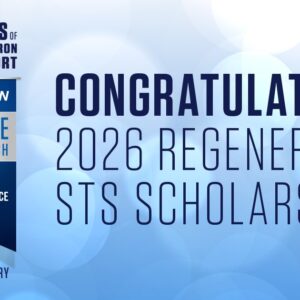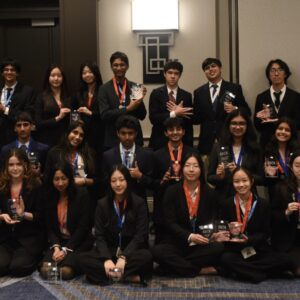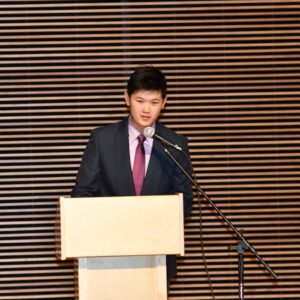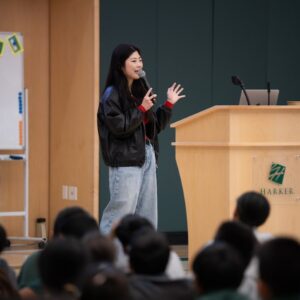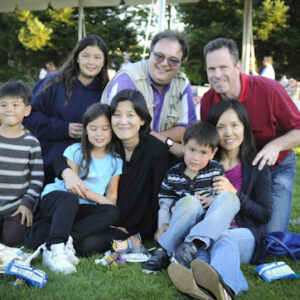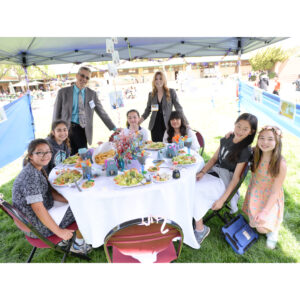The screening of the film “Race to Nowhere” at Harker Jan. 8 set the stage for three follow-up discussions on the topics of student well-being and optimal learning.
Approximately 130 parents attended the forums, which were held Jan. 19 at the lower school, Jan. 24 at the middle school and Jan. 25 at the upper school. Participating administrators included Christopher Nikoloff, head of school and Jennifer Gargano, assistant head of school for academic affairs, as well as deans, division heads and counselors from each campus.
Nikoloff opened each event by highlighting where Harker is, has been, and is going with respect to some of the issues raised in the film. By way of background, he referenced the 1981 book “The Hurried Child.” “Over the last 30 years, there have been a lot of hurrying dynamics in our children’s lives,” he said. “Now there is something of a backlash. It’s important not to get caught up in either end of the pendulum swing.”
With that in mind, Harker is continually evaluating its own programs from the perspective of its core values. “Our guiding star is love of learning, or intellectual curiosity,” Nikoloff said. “So when we ask questions … our goal is always deeper learning.” He then outlined some concrete steps Harker has taken over time in accordance with this philosophy, including the following:
Quarterly grading periods were changed to trimesters for K-5 and semesters for grades 6-12 to allow more time between assessments. Characterizing this as “a good start,” Nikoloff observed that there is still room for changes in pedagogy at all levels to decrease reliance on tests and incorporate more kinds of assessments.
The number of awards and awards ceremonies has been scaled back in favor of more cumulative annual recognitions. Almost every Harker student is among the top 10-15 percent of students nationwide, Nikoloff said, so comparisons must be undertaken with that in mind.
The requirements for summer courses and challenge tests have been increased in an effort to allow truly advanced students to work above grade level while avoiding artificial acceleration. Experience has shown that some accelerated students, particularly in math, do not develop the conceptual foundations they need for continued success.
Recent initiatives to improve the student experience include holding final exams before the holiday vacation so students can enjoy a real break, as well as adjusting the middle school bell schedule to eliminate conflicts between performing arts and athletics.
The upper school wellness program deepens in scope each year, and deals with such topics as sleep, stress, drugs, relationships and preparation for college. In 2010, student input was institutionalized by the creation of the Wellness Board, which includes representatives from each grade as well as Butch Keller, upper school head, along with faculty, counselors and the school nurse.
Advisories were established in grades 6-12 to build community and provide a scheduled opportunity to “take the pulse of the students’ lives and check in with them,” said Nikoloff, who went on to acknowledge an upper school parent’s perception that, yes, “sometimes community hinges on food.”
Teacher meeting time in grades 1-8 formerly spent arriving at consensus citizenship grades is now used to discuss students proactively and collaborate about how to best serve the needs of each.
A new dean of studies position was established last year, in part to help educate upper school students and families about how to choose an appropriate courseload and a balance of activities.
The dean of studies will meet with each grade 8 family this year to help them outline a suitable plan for high school, one customized to accommodate individual interests. Nikoloff recommended Ken Livingston’s book “The Element: How Finding Your Passion Changes Everything,” as a good read and a tool that helps inform these discussions.
Harker is exploring the possibility of becoming a Challenge Success school, which would formalize its ties with that organization, based in Stanford’s School of Education. Challenge Success schools work closely with such experts as Denise Clark-Pope and Madeline Levine, who have both spoken at Harker, as well as other member schools to explore best practices in support of student well-being and engagement with learning. “They work with you to help you do what you do better,” said Nikoloff. “Our goal is: How can we deepening the learning?”
Harker has been cultivating dialogue among parents, students, faculty and the public in a variety of ways, including through a homework survey, the Common Ground Speaker Series, and the “Race to Nowhere” screening and its ensuing conversation. Other examples of Harker’s expanding community outreach include The Harker Speaker Series, Harker Research Symposium, Harker Arts Series and ongoing parent education programs.
Harker wants above all to hear what its own students have to say about the “Race to Nowhere,” and has scheduled round table discussions to solicit their feedback.
After outlining these initiatives at each event, Nikoloff moved to address some common questions, including about homework. “We are doing a deep homework audit and we do think we can accomplish more with a little bit less,” said Nikoloff. But he also cautioned, “you probably will not feel that tonight. It’s a reflective process that will slowly yield results.”
That sat well with Julie Moncton (Michael, grade 7), who said she appreciated the opportunity for parents to weigh in. “It’s nice to see that change is in the works and yet it won’t be changing so radically that we end up with something that won’t work out,” she said.
Other questions focused on math and language arts grouping and whether it contributes to competition. Nikoloff urged parents to see grouping as part of the process of learning, not as a goal to be achieved. The idea behind grouping is to match each student with “the pace that is within their zone of proximal development,” he said. “That means children are being challenged without being stressed.”
Seeking Balance in Parenting
As Nikoloff opened the discussion to attendees, specific questions naturally evolved into lively parent discussions. Parents in each division raised the twin issues of 1) how to provide opportunities and encouragement for children without exerting unwitting pressure, and 2) how to preserve those opportunities for activities they are truly passionate about, especially when schoolwork encroaches.
One question hung over all the others: How will colleges ultimately view them? On this as on other points, Nikoloff urged parents not to compare their children with anyone else’s, but to evaluate their activities by whether they are happy and meaningfully engaged. “That will translate into getting into the college that is right for them,” he said.
His message resonated with Trish Tobin (Sheridan, grade 8; Brendan, grade 6; Ryan, grade 2), who said, “I really appreciate how much time this school invests in learning how children learn and what’s best for them as a whole – not just their academic selves.” Parent Jennifer Hargreaves (Sydney, K) agreed. She particularly valued the “variety of perspectives from parents” at the forum, she said, and the fact that “the school is leading the conversation in the best interests of our children.”
Dodging Trouble in the Teen Years
Discussion at the upper school event focused heavily on the specifics of right now, with many parents wanting to know warning signs of stress to watch for in their teens. Among the recommendations offered by Nikoloff and upper school counselors Lori Kohan and Chris Colletti were to find some unscheduled time with children in which to gauge their stress levels, and to take notice of an extreme response to a bad grade.
At school, teachers and advisors make sure to work as a team to solicit one another’s observations if something seems amiss, the counselors said, and parents should always feel free to contact them with concerns as well.
At all three forums, parents were encouraged to communicate their own values, for example by asking kids more questions about the “process” of learning than about their grades.
Alumna Casey Near ’06 offered valuable perspective based on her own experience. The Harker students who thrive are “the ones who really take the Harker message to heart — that it’s about the process, and it’s about the ability to think critically,” she said. “So it’s the parents’ role to make sure that’s the focus – and not that test, that quiz or that homework assignment.”

